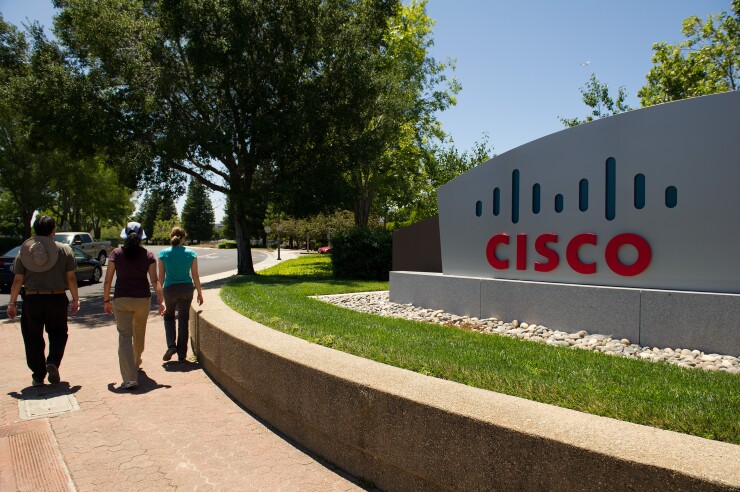Cisco is getting a lot more family-friendly in 2019.
The tech giant is rolling out egg storage reimbursement, surrogacy reimbursement and genetic testing benefits for its 38,000 U.S. employees — following the lead of other employers that are ramping up family-oriented perks to attract and retain talent.
The hunt is particularly apparent in Silicon Valley — Cisco is headquartered in San Jose, California — where tech companies are among those leading the way in progressive family benefits.
Cisco says it will reimburse employees up to $20,000 to harvest or store eggs or embryos and support pregnancy-fostering services. It also will increase reimbursement for adoption and surrogacy to $20,000 in 2019 from $10,000 now, and will cover genetic testing to identify gene changes associated with breast and ovarian cancer, even if the test is not medically necessary. The changes, announced in tandem with open enrollment, will kick in Jan. 1.

The company’s benefits enhancements “support diverse needs at every life stage for all employees and their families,” says Karen Wiens, HR director of health and wellness strategy at Cisco. “We want to adapt our benefits to the generations, especially as [they relate] to the choice of having children later in life and evolving technology that encourages prevention and medical interventions to address the risk.”
Fertility benefits and adoption benefits have been growing in recent years. According to
“Employers are evolving their healthcare programs to reflect that fertility benefits are becoming more important to many employees, including same-sex couples,” Jeff Levin-Scherz, a Willis Towers Watson researcher, told EBN earlier this year. “The additional coverage is often a win-win proposition. It allows employers to provide a valued employee benefit while improving their ability to attract and retain top talent and support diversity initiatives.”
Cisco joins several other companies that have recently added or increased fertility benefits.
Genetic testing, however, is a less-common benefit offering. Roughly 18% of employers offer genetic testing as part of their health coverage, according to the Society for Human Resource Management, but industry insiders say that number is expected to rise.
“We wanted to lead the market by offering this genetic test without medical necessity, within our medical plans, to enable informed decision-making to address a significant cancer risk,” Wiens says.
Under Cisco’s benefit, genetic tests are covered in full by the company as part of preventive health screenings available within its self-insured medical plans.
“All it takes is a conversation between the patient and physician in order to start the process of recommended pre-test counseling and ordering of the test,” she explains.
See also:
“When test results are positive, there is a significant risk of developing breast and/or ovarian cancer and there are medically recommended interventions to address the risk,” Wiens notes.





